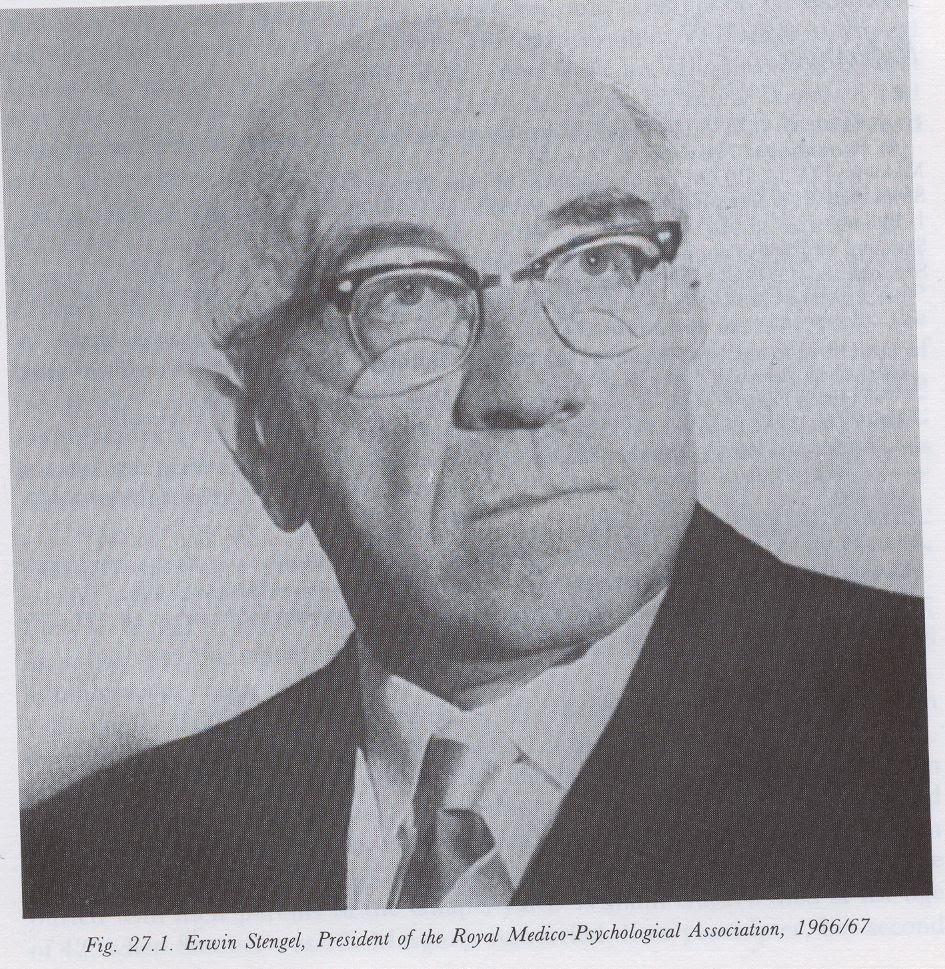Following his death (see previous post), I have been re-reading Alec Jenner's personal memoir (1) of Erwin Stengel, his predecessor as Professor of Psychiatry in Sheffield. Alec also wrote Stengel's Lancet obituary. Stengel founded the University Department of Psychiatry in Sheffield in 1957. Alec stepped into his shoes in 1967.
Stengel was from Vienna, as was Freud, and I remember Alec showing me an imitation Graeco-Egyptian pot that Freud gave Stengel for treating his maid. As Alec put it, "despite considerable neurological sophistication, there is a struggle to find humanistic explanations" in Stengel's writings.
Alec himself had an interest in philosophy even when Director of the MRC Unit for Metabolic Studies. Early in his career, he did nonetheless think he would explain manic-depressive illness biochemically, and probably never gave up the idea that a biological solution to mental illness may be found. Still, after his retirement there were those who sought to undermine his open-minded interest in democratic psychiatry, which they called "anti-psychiatry", and replace his emphasis with neuroscience. The current research interest of Sheffield academic clinical psychiatry is "biological investigation of psychiatric disorders, and includes the use of neuroimaging techniques to investigate psychotic and other psychiatric disorders".
Such a narrow modern focus on neuroscience is in contrast to the broader interests of Stengel and Alec Jenner and we at least need to return to a more pluralistic, if not critical, understanding of psychiatry.
(1) Jenner FA. (1991) Erwin Stengel. A personal memoir". In: Berrios GE & Freeman H: 150 Years of British Psychiatry 1841–1991. London: Gaskell. pp. 436–44.
Subscribe to:
Post Comments (Atom)


No comments:
Post a Comment